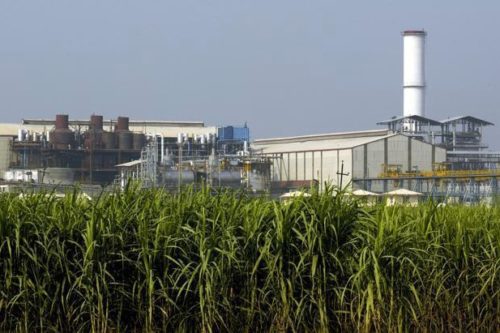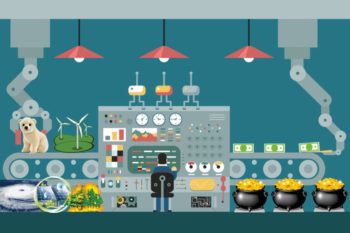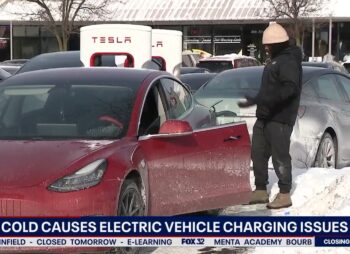Iowa Republican Sen. Chuck Grassley threatened to call for Environmental Protection Agency (EPA) Administrator Scott Pruitt to resign for “messing around” with aspects of the federal biofuels mandate.
Grassley said he’d call for Pruitt’s resignation if EPA did not honor President Donald Trump’s support for the Renewable Fuel Standard (RFS) on the campaign trail. Grassley was particularly incensed by EPA’s issuing of blending waivers to refineries.
“They better, or I’m going to be calling for Pruitt to resign because I’m done playing around with this,” Grassley said on a press call with agriculture reports Tuesday morning, invoking a Trump campaign promise to maintain statutory biofuel blending levels.
EPA has issued RFS compliance “hardship” waivers to more than two dozen refineries. The 2007 law allows EPA to issue waivers to refiners unduly burdened by the cost of blending ethanol.
Grassley recently led a group of 13 senators opposing EPA’s use of blending waivers, calling on the agency to stop issuing waivers. Lawmakers said EPA had improperly issued waivers to major refiners who did not qualify for them.
Iowa is a major beneficiary of EPA’s program that forces refiners to buy an ever-increasing amount of biofuels, including corn-based ethanol. Waivers mean fewer biofuels are purchased by refiners for blending into the fuel supply.
“Trump was elected with an agenda. Pruitt was not elected and Pruitt’s job to carry out Trump’s agenda,” Grassley said on the Tuesday press call.
The Trump administration is currently working with refiners and biofuels lobbyists to figure out a compromise on RFS blending. Refiners have increasingly called for RFS repeal or reform because of the massive financial costs those companies have to bear.
Should Grassley call for Pruitt to resign, he would be joining some of his Democratic colleagues who want the EPA head to step down over alleged overspending and ethics violations.
So far, 39 Senate Democrats have called on Pruitt to resign. No GOP senators have joined in calling for Pruitt to resign.
Read more at Daily Caller


















Grassley is one of a few politicians who actually makes sense . Just not this time . Those that want to exterminate people take away peoples food and energy using the earth has a fever as an excuse .
Hey, Iowa! Thanks for helping elect Trump. Now go F yerself.
Instead of critiquing Aido’s version of things biofuel, point by point, I’ll give another version.
Most western democracies subsidize their farmers. Either by supply management (Canada), or subsidizing exports to the third world, or paying farmers to NOT plant crops, or turn under surplus crops in years of abundance, or biofuels. The list of ways to keep farmers financially healthy is long. Interest free loans! Grants! Why? Because we over-produce. The world grain supply grows every year, 2012 being an exception. That particular year, pastures and fields of grain died in the American Midwest. In my opinion, ethanol plants should have been shuttered and compensated, their corn released to the food chain. Opportunity missed. To this day, biofuel detractors insist that the industry drives up food prices. Horse sh!t. It keeps farms operating. When I started my own operation in the seventies, 100 bushel / acre of corn was good. Today, 200 is good. Biofuels lit a fire under plant geneticists and farm technology overall.
Wheat has fallen out of favor with farmers because chronically surplus production makes it a money-loser. American dairy farmers could double output, but where’s the market for it?
There are some issues with biofuels in some older vehicles and small engines that see infrequent use as the fuel in the system goes stale. There’s a way around that.
My new Ford F150 burns any gasoline I put in it. I changed from E10 to 94 octane (no ethanol), and my mileage went from 15.2 mpg to 15.5 mpg. Woo hoo!
The ethanol industry is the WORST example of a swamp that needs to be drained. Insiders make 6 digit+ “contributions” to politicians and their election campaigns. In exchange they get the ethanol mandate forced onto Americans. The insiders get very wealthy and the cost is paid for by everyone else, including people who can barely afford it. Ethanol has been clearly demonstrated to be very wrongheaded on every level – as Aido long-windedly pointed out. If the only justification left is to subsidize the farmers, then the RFS should be killed. There are other ways to subsidize farmers that are massively more efficient, more transparent, and are not open to very deep corruption. One example of a better way is subsidizing exports to third world countries as you mentioned.
Feeding the Third World rewards you with a kick in the teeth at the United Nations.
Paying farmland owners to take it out of production is the best deal, environmentally, but it doesn’t make sense to taxpayers.” Pay someone to not produce? Why, that just drives up the price of food”
In the search to find alternatives to imported crude oil for the production of energy, scientists discovered that many plants contain oils that could fit the bill. The plants’ oil could be extracted, refined and used in addition to, or instead of, petrol and diesel. Known variously as biofuels, biodiesel or ethanol, it seemed as though the days of reliance on oil-producing countries was going to be gradually lessened.
The EU bureaucrats in Brussels with their customary disregard for unintended consequences of their pronouncements, decreed that by 2020, all members of the EU MUST include 10% of biofuel in all fuel sales.
There was one big problem: it turned out to be an extremely expensive procedure to turn these plants into fuel. Spending other people’s money – even on daft schemes – has never been a problem for government. So, the production of biofuels was subsidised (with the taxpayer picking up the tab).
Probably the most common way to use biofuel is as an additive to petrol for use in vehicles.
The thinking behind this was that in burning ethanol, the CO2 emitted would be less than the CO2 that was taken in by the plants to grow in the first place. So, ethanol would be a CO2-negative fuel.
What they didn’t take into account was that the seed for the crops first had to be transported to the farm – emissions. Then it had to be planted (by machines – we’re talking big farms here). – emissions. Then the ground had to be fertilised; factories make the fertiliser – emissions; trucks bring the fertiliser to the farm – emissions; machines spread the fertiliser – emissions. Then, machines harvest the crops – emissions; trucks transport the crops to the processing factory – emissions; the factory turns the crops into ethanol – emissions; the ethanol is transported by tankers to the fuel stations – emissions.
Allll these additional emissions make a nonsense out of the original rationale.
However, as it doesn’t matter –to a distant limit- how much CO2 there is in the air, what are the other downsides of this daft idea?
The most suitable crop for biofuel is grain. Here in the UK our annual wheat production is about 15 million tons. A lot of that goes to make bread, cereals, cakes, biscuits, snacks, confectionary and animal feed. To produce biofuel for a mere 10% of our annual fuel consumption would require 20 million tons. That means importing wheat. Other countries will have the same problem, so demand goes up and the price of grain skyrockets.
In the United States every gallon of petrol you buy in the US has biofuel (ethanol) added to it. To persuade existing grain farmers to switch from producing grain for human food and animal feed to producing it for ethanol, the government offered a generous subsidy. Naturally, when the government was writing cheques, there was no shortage of takers. The upshot was that so much land was switched to ethanol production, that there was a shortage of grain for human and animal food. The price of grain doubled.
Now the American public was paying twice – and still is: once for the subsidy and once for the hike in food prices. For no benefit.
In Mexico, the staple food is the tortilla. The tortilla is made from flour from corn, (wheat) most of which is imported from the US. When the price of corn rocketed, there were food riots in Mexico and people starved. Much the same thing happened in other third-world countries dependant on US grain.
The United Nations Food and Agriculture Association calls this “an environmental crime against humanity”.
Something else you don’t hear about: ethanol is bad for cars. When blended with petrol, it collects water, corrodes engine parts and increases maintenance costs. As if that weren’t bad enough, you get far fewer miles to the gallon with ethanol-blended petrol.
Another unintended consequence affected the international market in soybeans. Soybeans are a valuable source of protein where meat is too expensive for the poor. American soybean farmers switched to growing corn, to get the government subsidy, resulting in a shortage of soybeans. The price of soybeans shot up; worst affected were the poor.
With a domino-like effect, Brazilian farmers saw the opportunity and expanded their acreage, ploughing up pastureland to plant soybeans. That caused a shortage of dairy products; dairy farmers, needing pasture, started wholesale tree-clearance in the Brazilian rainforest to provide it.
To take advantage of the demand for biofuels, governments of south-east Asia have subsidised the palm oil industry. There, palm farmers have cut down millions of acres of rainforest to plant palm trees. Ironically, when you cut down forests, the clearance process releases CO2 into the atmosphere, further negating the whole rationale.
Hey Grassley, I call for you to resign because your biofuels are detrimental to this country. Iowa should not control what happens in this country.